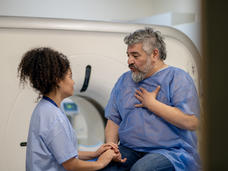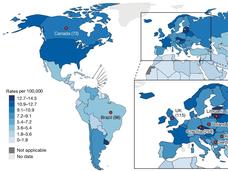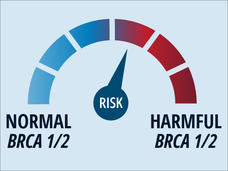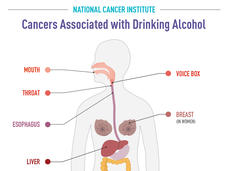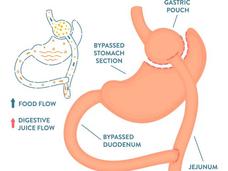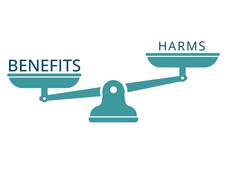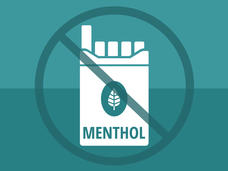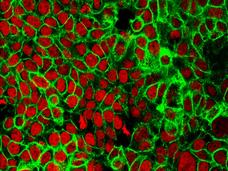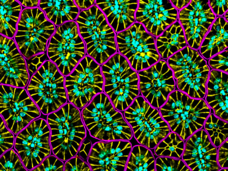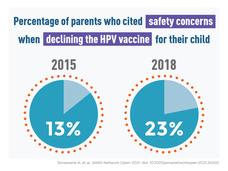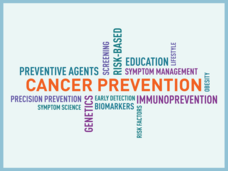Prevention - Cancer Currents Blog
Cancer prevention news, with comments from leading scientists. Topics include preventive interventions for those at increased risk of cancer, protective behaviors, and more.
-
Intensive Program Helps People Being Screened for Lung Cancer Quit Smoking
Results from a large NCI-funded clinical trial show that a comprehensive program that integrates intensive counseling and cessation medications may be a particularly effective way to help smokers being screened for lung cancer quit.
-
Tumor Signatures May Help Explain Global Differences in Kidney Cancer Rates
By analyzing patterns of DNA mutations in kidney cancers from people around the world, researchers have discovered new clues about possible causes of the disease. Identifying these mutational signatures might lead to strategies for preventing kidney cancer.
-
Studies Assess Impact of Cancer Risk-Reduction Measures for People with BRCA Changes
For women with inherited changes in the BRCA1 or BRCA2 genes, regular MRI scans and undergoing a surgery called a salpingo-oophorectomy appear to lower their chances of dying from breast and ovarian cancer, according to results from two studies.
-
What Happens If More People Get Screened for Cancer?
Researchers used computer modeling to estimate the number of deaths that could be prevented, and the harms caused, if more people used USPSTF-recommended cancer screening tests. The study’s lead investigator, Dr. Amy Knudsen, explains the findings.
-
For People with Inherited Risk of Stomach Cancer, Gastrectomy Has Lasting Consequences
In a recent study, more than 90% of people who’d had their stomach surgically removed to prevent cancer experienced a least one chronic complication 2 years out from their surgery. For some, the complications are life altering.
-
FDA Authorizes Blood Test for Assessing Risk of Hereditary Cancers
The Food and Drug Administration (FDA) for the first time has granted marketing authorization for a blood test, the Invitae Common Hereditary Cancers Panel. The test detects inherited genetic changes that increase the risk of developing certain cancers.
-
Can Cancer Prevention Be Better Integrated into Primary Care?
When it comes to cancer prevention, primary care clinicians play a critical role. But there are many barriers to integrating cancer prevention into primary care. Researchers are trying to better understand those barriers and how best to overcome them.
-
Study Probes Awareness of Alcohol’s Link to Cancer
A study confirmed that most US adults aren’t aware of the link between alcohol consumption and cancer. Even among those surveyed who were aware, some believed risk varies by the type of alcohol.
-
Bariatric Surgery May Reduce the Risk of Some Common Cancers
A new study suggests that people with obesity who had bariatric surgery had a much lower risk of five common cancers that aren’t related to hormone levels, including lung, colorectal, and esophageal cancer.
-
Cancer Screening Guidelines Often Lack Information on Potential Harms, Study Finds
In a review of 33 cancer screening guidelines, researchers have found that many don’t adequately capture the potential harms of cancer screening. Providing information on harms is critical so people can have informed discussions about screening with their health care providers, the researchers noted.
-
FDA Proposes Rule Prohibiting Menthol Cigarettes
A proposed rule prohibiting menthol flavoring is expected to make cigarettes less appealing, lower smoking rates, and reduce diseases and deaths caused by cigarette smoking. Tobacco control researchers say the proposed ban could have the greatest impact on youth and African American smokers.
-
More Evidence that One HPV Vaccine Dose Protects against Cancer-Causing Infections
One dose of the HPV vaccine was highly effective in protecting young women against infection from high-risk HPV types, a study in Kenya found. A single dose would make HPV vaccines more accessible worldwide, reducing cervical cancer’s global burden.
-
Keto Molecule Offers Clue for Preventing Colorectal Cancer
In a study in mice, researchers showed that BHB, a compound produced while eating a ketogenic diet, may slow or stop colorectal cancer from growing. More studies are needed, they warned, to see if BHB has similar effects in humans.
-
Air Is Life: The Navajo Nation’s Historic Commercial Tobacco Ban
With the passage of the Air is Life Act of 2021, the Navajo Nation enacted the most comprehensive ban on commercial tobacco products of any American Indian tribe to date.
-
FDA Oversight of E-Cigarettes Gathers Speed: A Conversation with Mitch Zeller
Companies that want to market e-cigarettes in the United States must now submit applications to the Food and Drug Administration (FDA). In this interview, Mitch Zeller, director of FDA’s Center for Tobacco Products, provides insights into FDA actions on e-cigarettes.
-
Does Too Much Fructose Help Colorectal Cancers Grow?
Excess fructose can promote obesity and colorectal cancer, a new study shows. In mice, the study found that the sweetener, a component of table sugar and high-fructose corn syrup, increased how long normal and cancer cells in the intestines live.
-
Despite Proven Safety of HPV Vaccines, More Parents Have Concerns
Despite consistent evidence that HPV vaccines are safe and effective, a new study shows that more parents are citing concerns about their safety. Researchers cautioned that efforts are needed to counter this trend and improve vaccination rates.
-
Pattern of DNA Damage Links Colorectal Cancer and Diet High in Red Meat
Researchers have discovered a consistent pattern of DNA damage in colorectal tumors that may explain how a diet high in red and processed meat can help cause colorectal cancer.
-
Advancing Cancer Prevention: A Conversation with NCI’s Dr. Philip Castle
The director of NCI’s Division of Cancer Prevention, Dr. Philip Castle, discusses the division’s priority areas and his vision for making more rapid progress in cancer prevention, including moving toward precision prevention and immunoprevention.
-
Smoking Initiation Shifting from Teens to Young Adults
The age at which people tend to start smoking has shifted upwards, with more young adults than teens trying smoking for the first time or becoming regular smokers, according to a new study.
